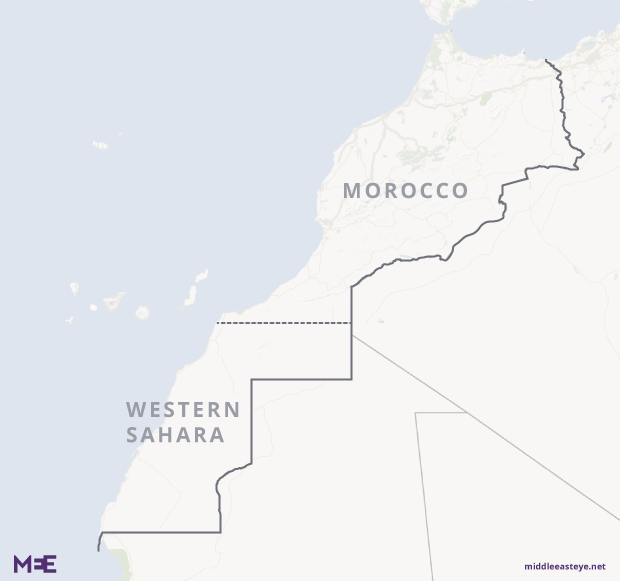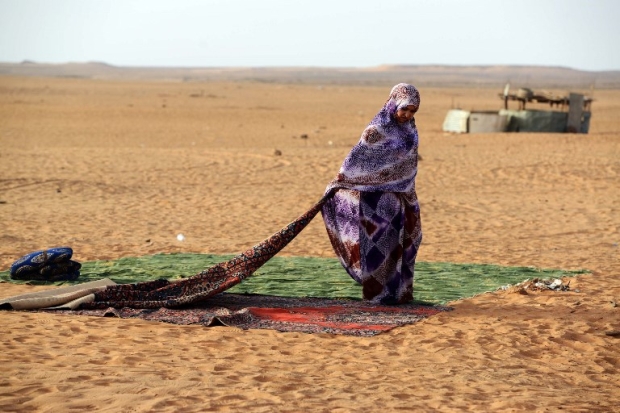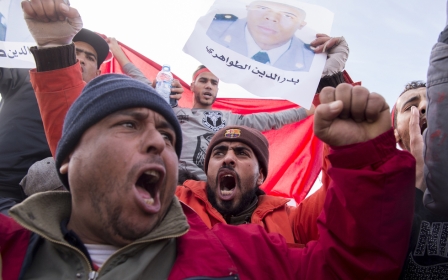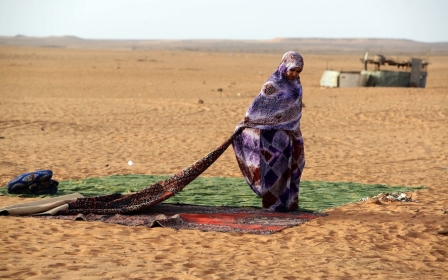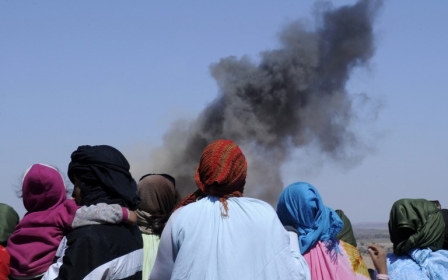‘This is occupation’: The Sahrawi politicians lobbying for recognition
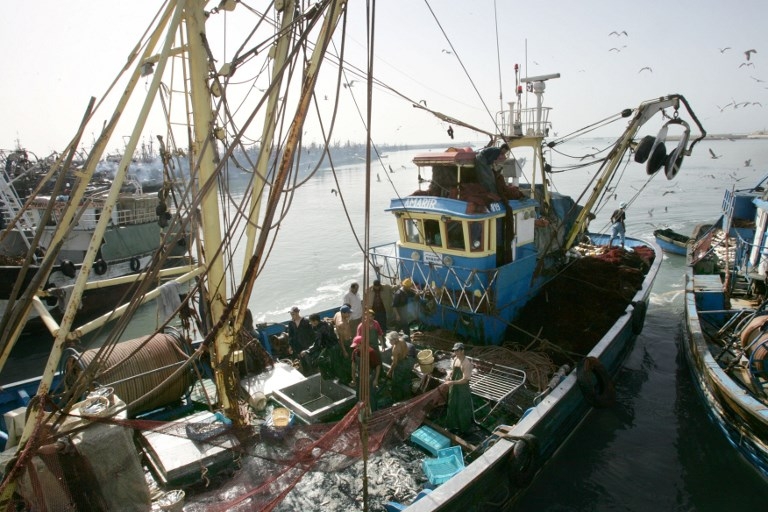
Every day, European fishing vessels off the coast of the western Sahara reel in their nets for markets back home – tuna, sardines, hake and cephalopods, such as octopus.
For the right to fish this rich sea, the EU pays Morocco an annual sum of $37m, some of which must go to supporting its own fishing industry, and for each tonne of fish caught, individual shipping companies must pay the government in Rabat – for tuna it’s $43 per tonne.
The native Sahrawi people in the occupied territory of western Sahara receive nothing. The UN lists the western Sahara as a non-self-governing territory, and says the region has a right to self-determination. Morocco claims the region as part of its own.
And while the trade deal between Morocco and the European trade bloc - enacted in 2007 - covers the entire coastline of Morocco, 91.5 percent of fish caught by European fishing vessels is taken from waters off the western Sahara, not Morocco proper, according to the EU.But in January, the European Court of Justice’s advocate-general issued an opinion declaring the trade agreement “invalid”.
In unambiguous language, Belgian lawyer Melchior Wathelet said that:
“By concluding that agreement, the EU was in breach of its obligation to respect the right of the people of western Sahara to self-determination and not to recognise an illegal situation resulting from breach of that right and has not put in place the safeguards necessary to ensure that the exploitation of the natural resources of western Sahara is for the benefit of the people of that territory.”
'The EU was in breach of its obligation to respect the right of the people of western Sahara to self-determination'
- Melchior Wathelet, European Court of Justice’s advocate-general
His non-binding opinion followed a complaint lodged by UK-based Western Sahara Campaign activists at the High Court in London in 2017, who in turn sought legal advice from the European Court of Justice.
The ECJ is expected on 27 February to vote on the legality of the deal, and Sahrawi politicians feel buoyed that not only will their right to their natural resources then be protected, but their right to self-determination might also receive an endorsement.
“This is a big achievement for my people, for their right to self-determination,” Mohamed Sidati, the Polisario Front’s representative in Europe, told MEE.
“It shows that the western Sahara is illegally occupied by Morocco,” he added, referring to the statement by Wathelet.
He also criticised European powers for not just allowing the occupation of the western Sahara to continue, but to financially bolster that occupation.
“Europe shouldn’t be part of the problem, they have to be part of the solution. And in this way they shouldn’t invest or encourage Morocco, the occupying power.”
The Polisario Front, the UN-recognised representative of the Sahrawi people, is also encouraged that the forthcoming vote on the fisheries agreement follows an ECJ ruling in late 2016 which ruled that other (land-based) trade agreements between the EU and Morocco could not include the western Sahara.
Legal precedent
And while Wathelet’s “opinion” issued last month was just that, Polisario feels optimistic, looking at legal precedent.
“We are optimistic because in 70 percent of cases, the court follows the opinion of the advocate-general,” Manuel Devers, the legal adviser to the Polisario Front, told MEE.
“In relation to western Sahara, the court has already ruled in December 2016 on the trade agreements. According to the right to self-determination, the consent of the Sahrawi people is required for any international agreement applicable to western Sahara. So the principles apply equally to the fisheries agreement.”
'Language really matters, and people have to be aware that this is an occupation'
- Manuel Devers, legal adviser to the Polisario Front
Occupied by Morocco after the withdrawal of colonial power Spain in 1975, the western Sahara indisputably receives less attention that other ongoing occupations, such as Israel’s of Palestine, and Russia’s over Crimea.
“I want to emphasise,” said Devers, “the western Sahara is not a disputed region, it is a territory that has a border with Morocco. It is not disputed, it is occupied.
“Language really matters, and people have to be aware that this is an occupation.”
“Driven by the hope of obtaining security cooperation or trade deals, powerful states are often complicit in Morocco’s illegal occupation,” said Nour Bakr, from Independent Diplomat, a consultancy group advising the Polisario.
“In parallel Morocco, an occupying power, has deliberately prevented access for media and international observers seeking to highlight the reality in the occupied territories; daily systematic repression and human rights abuses carried out by its security forces.”
If, as the Polisario predicts, the ECJ ruling on 27 February formally invalidates the fisheries agreement with Morocco, by 1 March fishing vessels will have to leave the waters off the coast of the western Sahara.
The current agreement involves 120 vessels from 11 EU countries, including Spain, Portugal, Italy, France, Germany, Lithuania, Latvia, the Netherlands, Ireland, Poland and the United Kingdom.
But, Polisario is keen to stress, they are willing and able to immediately issue those very same fishing vessels with licenses to continue operating, and fishing in their waters.
“Legally speaking there is the political will to see business going on in western Sahara, we also have the legal ability to deliver fishing licences to fishing vessels from the EU,” Devers said.
“The Polisario Front would help with this management.”
'We have said from the beginning that we are not against European interests in the western Sahara'
- Mohamed Sidati, Polisario Front’s envoy to Europe
And, after decades of neglect from the government in Rabat, upon eventual independence, western Sahara is also looking for international investment for reconstruction, Sidati added.
Asides from offshore fishing, this sparsely populated stretch of desert also has phosphate and possibly oil reserves.
“We have said from the beginning that we are not against European interests in the western Sahara,” said Sidati.
“We need investment and business in the reconstruction of western Sahara. We are completely open to any suggestions.
“We are saying – please don’t invest to enforce occupation. It is enough after 43 years.”
New MEE newsletter: Jerusalem Dispatch
Sign up to get the latest insights and analysis on Israel-Palestine, alongside Turkey Unpacked and other MEE newsletters
Middle East Eye delivers independent and unrivalled coverage and analysis of the Middle East, North Africa and beyond. To learn more about republishing this content and the associated fees, please fill out this form. More about MEE can be found here.


